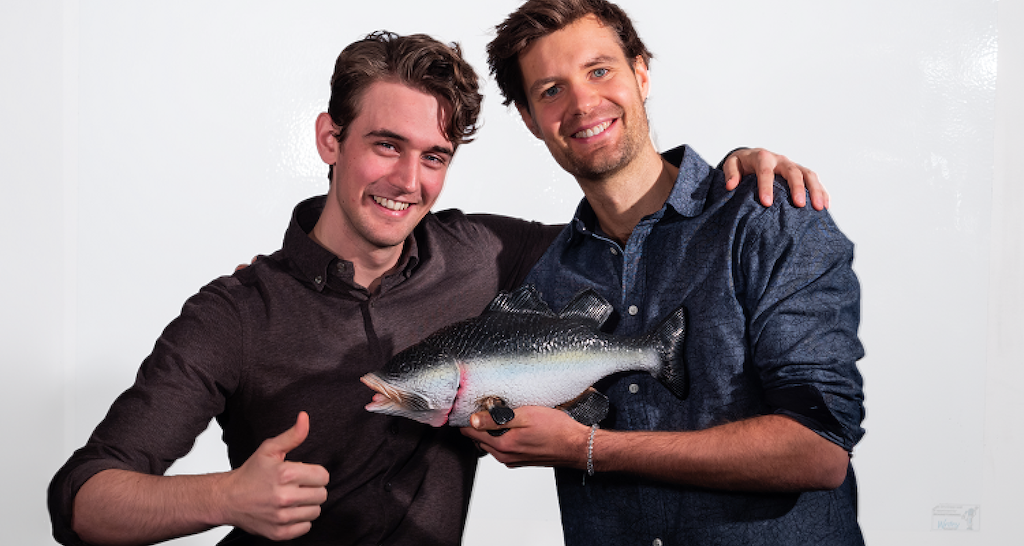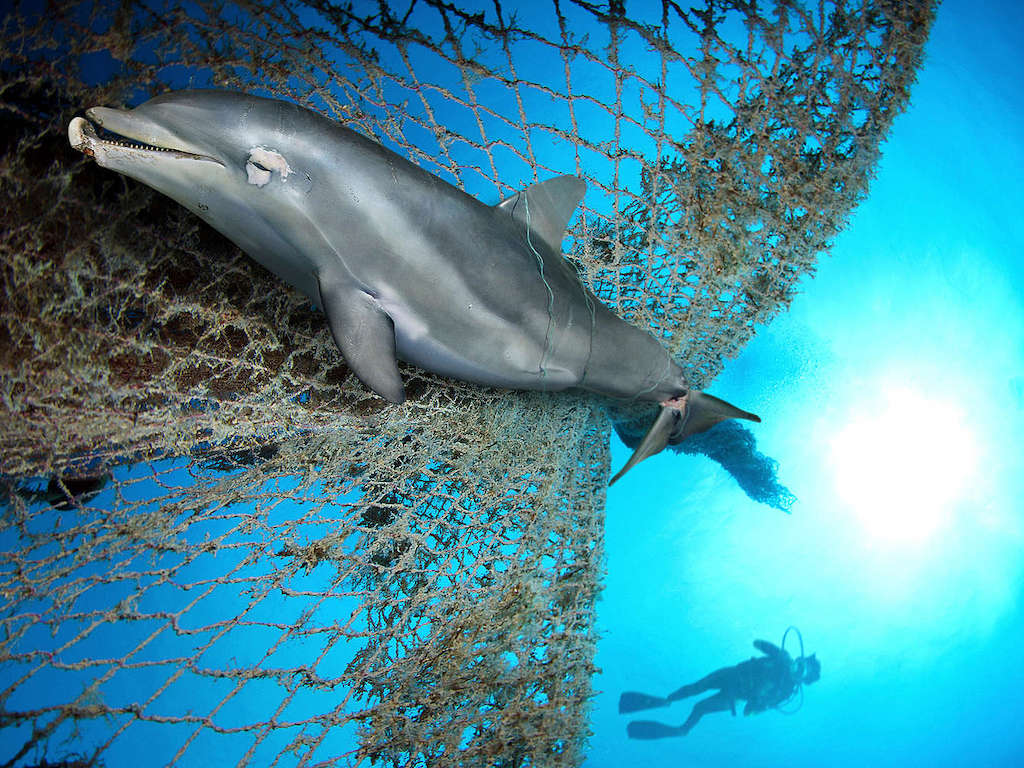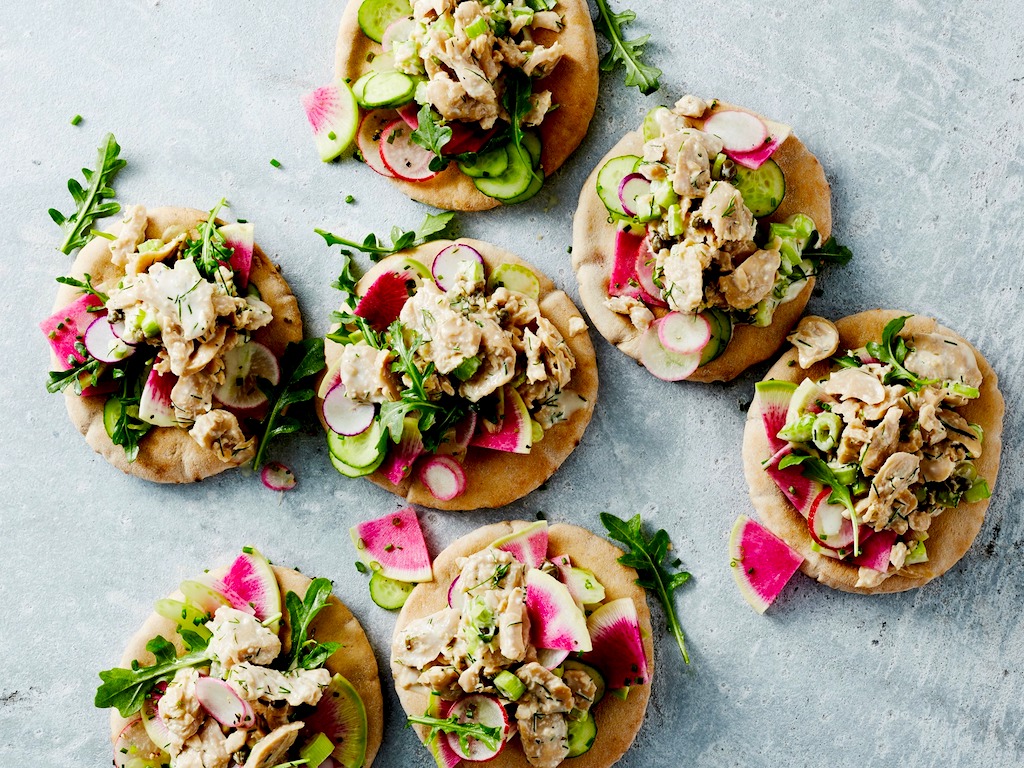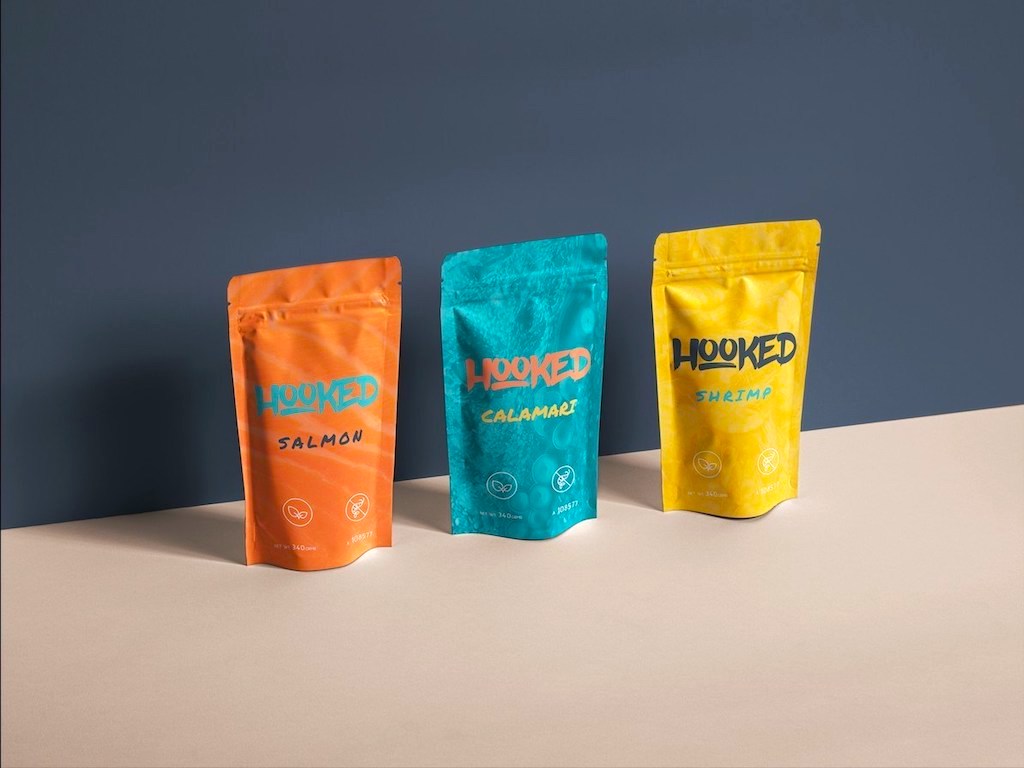4 Mins Read
Hooked, a Swedish plant-based food tech, is creating the world’s first vegan shredded salmon product. As the most consumed seafood protein in Europe, the startup has set its sights on disrupting the continent’s food system with its cruelty-free, toxin-free, healthy and sustainable alternative. In the future, Hooked wants to develop plant-based calamari and shrimp.
Founded in 2019 by Emil Wasteson & Tom Johansson, Hooked is a Stockholm-based food tech developing a vegan shredded salmon alternative. The first two products that Hooked is planning to introduce is vegan shredded salmon and tuna, with soy protein as its main ingredient. The products, created through the use of wet extrusion, will also contain seaweed and algae oil to provide omega-3 fatty acids.
The founders were originally inspired to tackle unsustainable and unsanitary shrimp farming practices in Asia and its overuse of antibiotics, but later sought to focus on tackling the demand for salmon and tuna in their home country, which represent the top two most consumed seafood products in Europe.
Read: Is eating seafood more carbon-friendly than meat?

“We found that the problem with shrimp is essentially the same for tuna and salmon. The issue lies in producing as much as possible for as low cost as possible,” Johansson told FoodNavigator. “Demand is growing for seafood, what is [compromised] is the health of the animals and the planet.”
Our rising demand for seafood is accelerating the loss of ocean biodiversity at astonishing rates, damaging not only the hunted species but to all marine life, such as sharks, dolphins and whales caught in by-catch. Scientists predict that by 2050, we could be looking at little or no seafood available left in the ocean.
The seafood industry is also linked to the global plastic pollution crisis – ghost nets amount to an astonishing 640,000 tonnes of waste across the ocean, which then are ingested by aquatic life, including the species commonly consumed by humans.

In addition to depleting fish populations and plastic pollution, Wasteson said that there are health concerns with consuming seafood, with high levels of mercury, antibiotics and other toxins detected in many samples. A recent study from the University of Washington revealed that fish contains 283 times more parasitic worms than in the 1980s.
Read: Shrimp virus to hit China’s seafood industry, another blow to food security
“Changing the way we consume food is needed more than ever for us to live sustainably on the planet,” said Wasteston in conversation with FoodNavigator.
“By consuming Hooked’s products, consumers can enjoy seafood without any of these negative consequences. We are meeting the rapidly increased seafood demand with healthy and tasty alternatives with a production that can scale without harming the planet.”

Hooked plans to first launch via foodservice and ready meals before entering direct-to-consumer retail markets in the future, starting with its domestic Dutch market and then expanding to other Nordic countries.
The Swedish startup was recently selected to join Berlin-based ProVeg Incubator, which helps plant-based and cultivated food techs raise funding and develop products that will solve the challenges of the global food system.
Hooked isn’t the first food tech to develop plant-based seafood alternatives. United States-based Good Catch, for instance, has created vegan tuna out of peas, chickpeas, soybeans, lentils, fava and navy beans. Since its founding in 2016, Good Catch’s products have been rolled out in 4,500 retail outlets stateside, and recently made headlines for attracting celebrity investments to help it expand internationally.
Lead image courtesy of Hooked.


